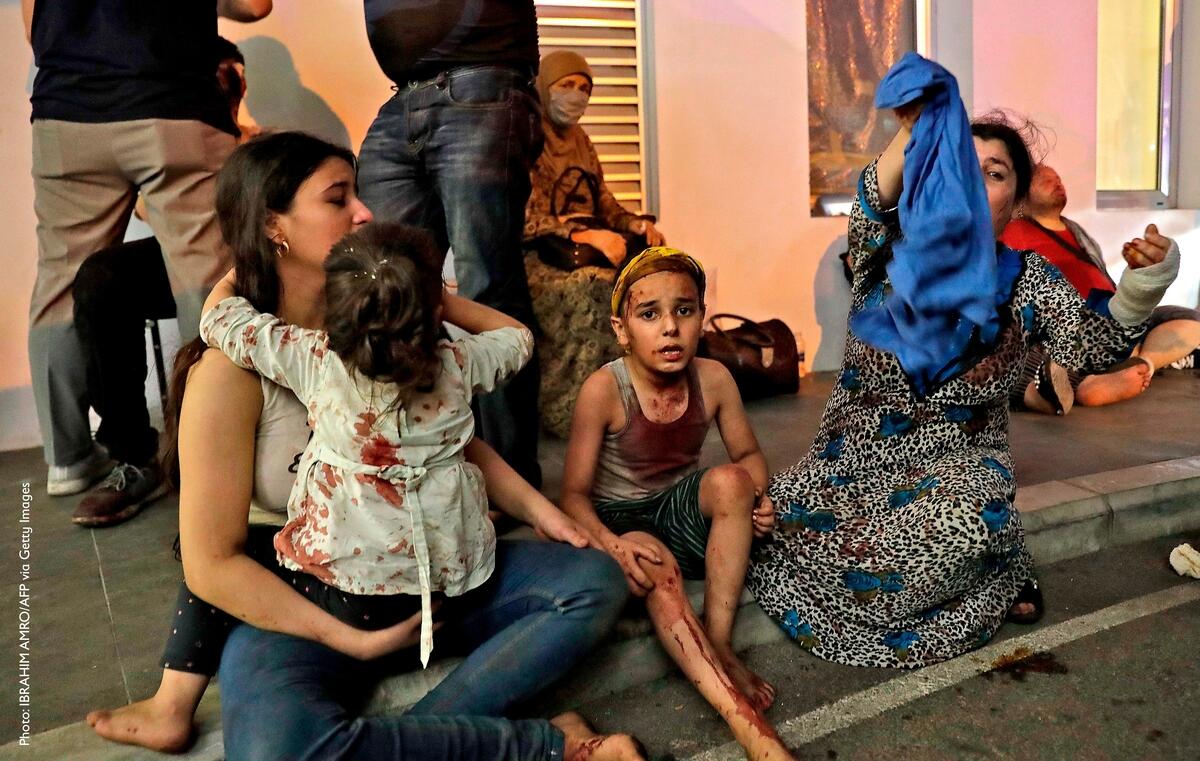
| In the early evening of 04 August, a catastrophic explosion struck Beirut’s central port, injuring thousands and sending destructive shock waves throughout downtown. Current evidence points to an industrial accident rather than an intentional malicious act. On top of the immediate harm of the blast, the destruction of Lebanon’s principal port carries massive humanitarian implications for a country already reeling from an economic and food security crisis.
The explosion was apparently caused by the ongoing storage of 3,000 tons of highly explosive ammonium nitrate in Warehouse #12 at the busy Beirut Port. The hazardous chemicals—used primarily in fertilizers—was seized in 2011 from a ship that foundered off the coast of Lebanon and whose owners could not afford to rehabilitate the ship. Seemingly, poor warehouse management and failure to safeguard the hazardous materials or at least transfer them away from key infrastructure and densely populated areas has meant that the materials have remained in the port, where yesterday an accidental explosion at an adjacent warehouse triggered the devastating explosion at Warehouse #12. The explosion itself has destroyed the port in Beirut, and the force of the shock waves has resulted in the near total destruction of downtown Beirut with at least a 5km radius. The damage to infrastructure includes schools, hospitals, offices, residential premises and businesses. There are initial estimations suggesting that up to 300,000 people are currently without homes. Hospital and ambulance services quickly surpassed their ability to respond. The destruction of Lebanon’s principal port is a devastating blow to a the people of Lebanon already experiencing an economic and humanitarian crisis. Lebanon is an import-heavy country, and Beirut Port is its lifeline for many people. More than 80 percent of the grains that feed the country pass through this port. The explosion destroyed the main grain terminal along with the silos that hold the national reserve stockpile. Second-tier ports, such as the large port of Tripoli, do not have the capacity to replace Beirut. This explosion comes at a time during which Lebanon was already experiencing economic collapse exacerbated by COVID-19 as well as an ongoing Syria refugee response. The country had already experienced the devastating impact of loss of employment, huge rises in poverty and loss of basic services. Health care systems had already been struggling under the COVID-19 pandemic and food insecurity was significantly growing each month. This new layer of devastation has only furthered the existing risks to children and families as well as exposing new ones. |